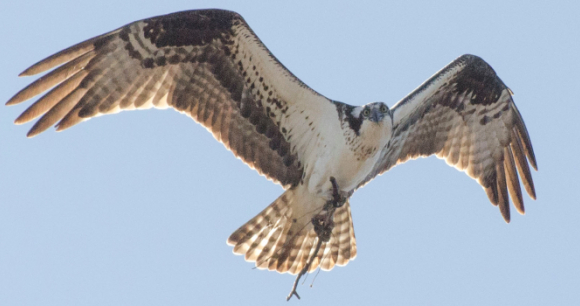
Washington, DC—The Animal Welfare Institute (AWI) commends Rep. Ted Lieu (D-CA) for introducing yesterday the Lead Endangers Animals Daily (LEAD) Act, which would prohibit hunters from shooting toxic lead bullets on land managed by the US Fish and Wildlife Service.
The new legislation would exempt all activities carried out in an official capacity by government officials or agents, state or federal law enforcement officers, or active members of the military.
“We see story after story about bald eagles, a magnificent symbol of our nation, dying of lead poisoning after ingesting bullet fragments or contaminated carcasses,” said Cathy Liss, president of AWI. “There is simply no doubt about the tragic and potentially lethal effects of this toxin on humans and animals. It is irresponsible to litter the environment with lead bullets, especially when so many viable alternatives are on the market. We thank Congressman Lieu for introducing legislation to prevent the needless poisoning of wildlife.”
Lead has long been recognized as a toxin. While this dangerous metal has been banned in virtually all products—from toys to paint—it is still regularly used by the hunting industry. Ammunition is considered the largest source of lead knowingly discharged into the environment.
"Lead poisoning is a well-known health risk for humans, but it also threatens wildlife," Lieu said. "Birds like California condors and bald eagles scavenge on animal carcasses and are at risk of lead poisoning because of exposure to lead fragments from ammunition. Lead from spent bullets can also leach into water supplies and poison additional innocent animals.”
“By banning lead ammunitions on the 95 million acres of land that US Fish and Wildlife Service manages, we can reduce the exponential harm inflicted on animals from lead exposure,” Lieu continued. “My bill is a common-sense solution that has support from sportsmen and conservationists alike. I look forward to working with my Congressional colleagues on efforts like this to reduce harm inflicted on our animal friends."
An estimated 10 to 20 million birds and other animals die each year from lead poisoning in the United States, including threatened and endangered species. Exposure to lead can occur through contaminated air, water, soil, and food. Animals suffering from lead poisoning endure a long, painful death, often involving emaciation, paralysis, and organ failure. Moreover, lead ammunition in dead wildlife is often consumed by other animals and passed along the food chain. There are documented examples of more than 130 species exposed to or killed by ingesting lead shot, bullet fragments, or prey contaminated with lead ammunition.
Humans are also at risk for lead poisoning. Upon impact with bone, lead ammunition tends to shatter into fragments, leaving shards and imperceptible dust-like particles. This makes it nearly impossible to completely remove from meat. Even minimal exposure to lead from tainted meat is a serious threat to human health; the Centers for Disease Control and Prevention has determined that there is no safe level of lead exposure for humans.
Comparable alternatives, such as copper and steel ammunition, are widely available, and many sports enthusiasts have pushed for lead shot restrictions. This bill would not impede hunters or prevent hunting, but would simply avert the catastrophic environmental effects of toxic lead ammunition.
Margie Fishman, (202) 446-2128, [email protected]